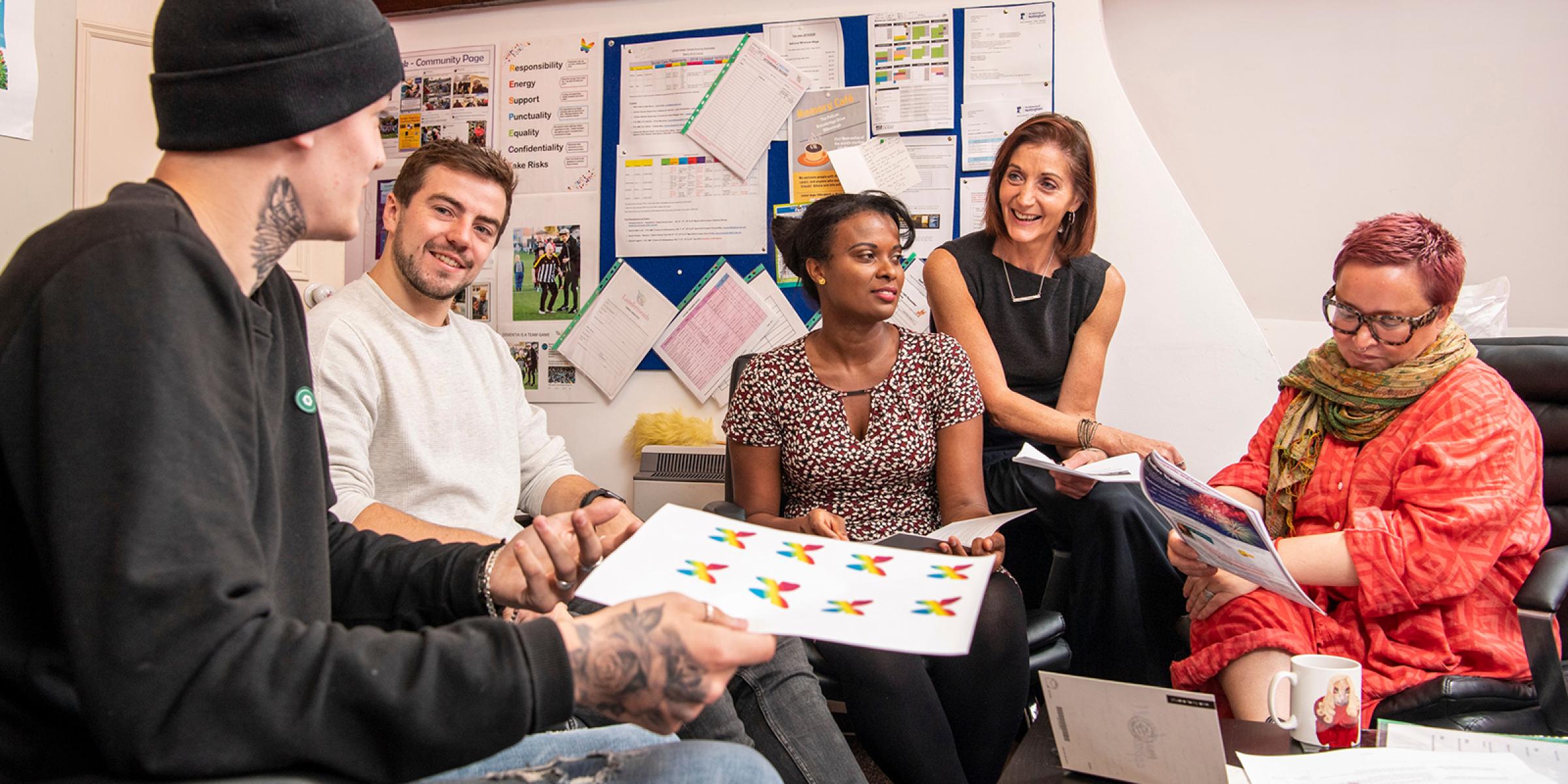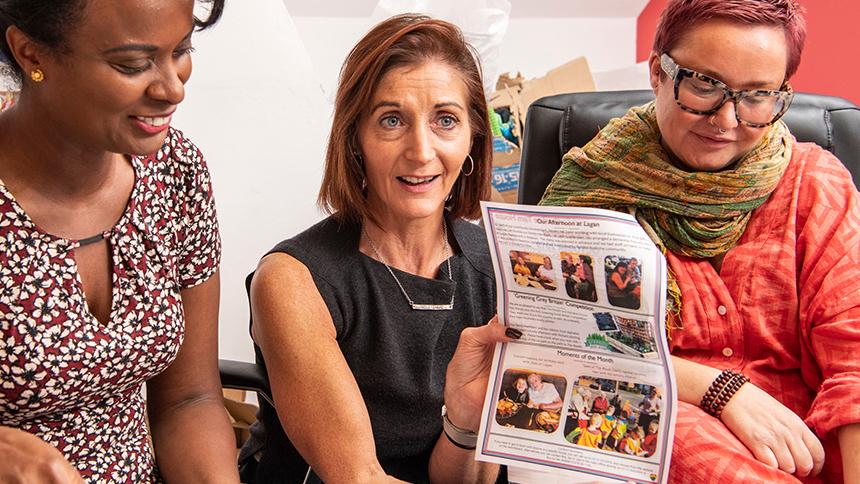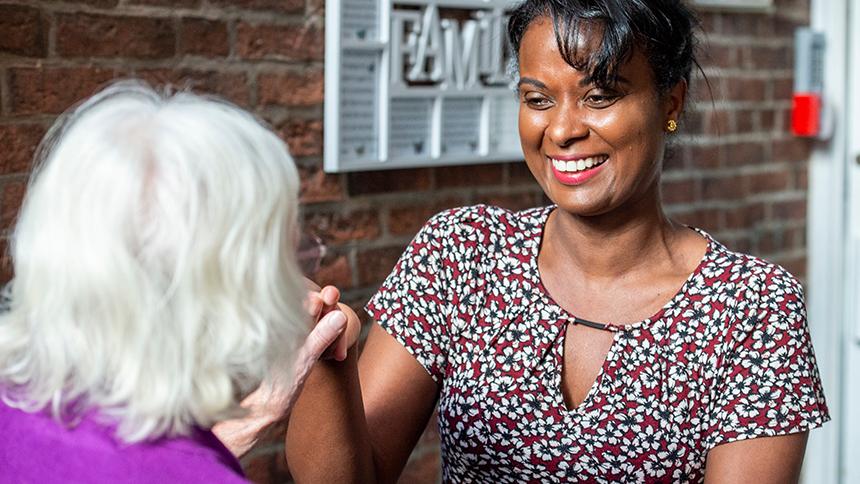
Pride in Care: Promoting inclusivity and understanding
Helping care providers to better support older LGBT+ people.
Organisations providing care for over-50s, including people with dementia, can now work towards a quality standard to show how they support LGBT+ (lesbian, gay, bisexual and transgender) people.
‘It was clear that there was a need for the Pride in Care standard,’ says Jim Glennon, Training and Consultancy Manager at Opening Doors London, a charity that supports older LGBT+ people.
‘I looked at existing research into the attitudes of health and social care staff to LGBT+ clients and patients. There was some prejudice, but more a lack of confidence and people saying they didn’t feel they’d had sufficient training.
‘I also used our own knowledge from the 2,000 older LGBT+ people we work with. Older LGBT+ people going into care tend to be single, often have no children and can be estranged from their family.
‘So often, when they’re contemplating care, it’s going to be care on their own and they may be feeling vulnerable. They may go back into the closet because of fear of how they’ll be treated.’
‘Pride in Care can be powerful in creating lasting cultural change,’ says Jim.
Opening Doors London oversees the process for Pride in Care accreditation. This looks at staff attitudes and training, policies, procedures and publicity, and the experiences of people using services, as well as Opening Doors London ambassadors assessing the organisation.
The Pride in Care standard lasts for three years, after which it can be renewed. Opening Doors London keeps in touch with accredited organisations, sharing news and supporting how staff are recruited and managed, where needed.
‘Pride in Care can be powerful in creating lasting cultural change,’ says Jim.

Landermeads care home is hoping to receive the Pride in Care standard
Better culture
At the moment, 12 organisations are at different stages of the Pride in Care assessment process. The first to be awarded the standard was Right at Home Central London, which offers live-in care and home care, including to people living with dementia.
‘We’ve had some LGBT+ clients and felt there must be more we can be doing for them,’ says Bryan McMorrine, Managing Director and Owner.
‘We want clients to feel more comfortable discussing their sexual orientation or gender identity. If they’re holding something back, then it’s harder for us to build a relationship with them.’
An initial survey revealed that some of Bryan’s staff didn’t understand why the Pride in Care standard was necessary.
‘That was a big negative, but it showed exactly why we needed it,’ he says.
As part of the process, Right at Home Central London introduced changes to benefit both its staff and clients.
‘Our policies and procedures weren’t wrong, but they weren’t fully inclusive,’ says Bryan. ‘I wrote a new policy and procedure for if an employee was transitioning.
‘All of our job adverts now say that applicants must be prepared to work with LGBT+ people in a non- discriminatory way. We want to make sure the LGBT+ community know they won’t be discriminated against.’
‘Our support workers feel more comfortable and confident going out to LGBT+ people,’ says Ezra.
Ezra Akar, a Care Manager for Right at Home Central London, says the Pride in Care standard has generated a better culture among staff, which can only be good for clients.
‘Our support workers feel more comfortable and confident going out to LGBT+ people, which helps make those clients feel more comfortable, protected and safe,’ she says.
Having the standard has already made a notable difference to Bryan and his team’s work.
‘We recently had a new LGBT+ client who wasn’t sure about having someone live with them, but was happier about it when they heard we had the standard,’ he says.

Landermeads staff feel that Pride in Care fits the home's ethos
Very proud
Landermeads care home in Nottingham – which has been recognised for its work supporting people with dementia – is going through the process for Pride in Care accreditation.
‘We value people’s emotions and who they are, but I felt there were things we could do to make our environment even more inclusive,’ says Ros Heath, the home’s Owner Manager.
There were many positive responses to an initial staff survey, but it also showed room for improvement.
‘It showed that we have lots of very good practice and are very inclusive – staff agreed that the standard fits with what we do,’ says Ros.
‘But it did also highlight some elements of banter that some non-care staff thought was acceptable, but which isn’t.’
‘We’re hoping to give a message of inclusivity,’ says Ros.
Landermeads has rewritten policies and procedures to make them more inclusive. They have also made more subtle changes, such as adding rainbow butterflies to its building and literature – imagery they hope LGBT+ people will recognise.
‘We’re hoping that things like that will give a message of inclusivity if LGBT+ people come to us,’ says Ros.
Landermeads is soon to be assessed and potentially awarded the Pride in Care standard.
‘I’d be very proud to receive it,’ says Ros. ‘This is important – it’s something to be taken seriously.’
Supporting an LGBT+ person with dementia
Advice and practical tips for supporting a lesbian, gay, bisexual or trans person living with dementia.

